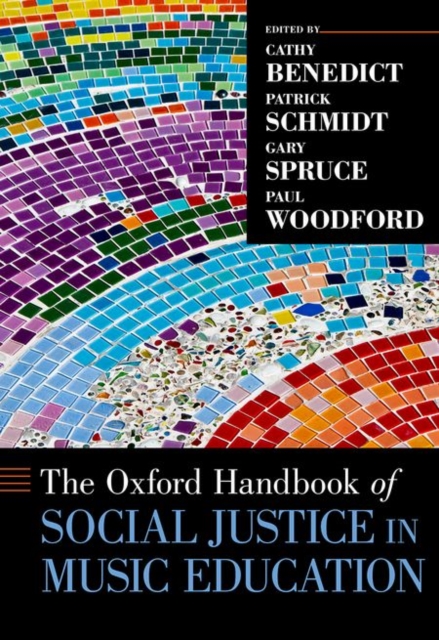
The Oxford Handbook of Social Justice in Music Education Hardback
by Cathy (Assistant Professor of Music Education, Assistant Professor of Music Education, Uni Benedict, Patrick (Associate Professor of music education, Associate Professor of music education, Fl Schmidt, Gary (Senior Lecturer in Education, Senior Lecturer in Education, The Open University) Spruce, Paul (Professor of Music Education, Professor of Music Education, Western University) Woodford
Part of the Oxford Handbooks series
Hardback
Description
Music education has historically had a tense relationship with social justice.
One the one hand, educators concerned with music practices have long preoccupied themselves with ideas of open participation and the potentially transformative capacity that musical interaction fosters.
On the other hand, they have often done so while promoting and privileging a particular set of musical practices, traditions, and forms of musical knowledge, which has in turn alienated and even excluded many children from music education opportunities.
Teaching multicultural practices, for example, has historically provided potentially useful pathways for music practices that are widely thought to be socially just.
However, curricula often map alien musical values onto other musics and in so doing negate the social value of these practices, grounding them in a politics of difference wherein "recognition of our difference" limits the push that might take students from tolerance to respect and to renewed understanding and interaction.
The Oxford Handbook of Social Justice in Music Education provides a comprehensive overview and scholarly analyses of the major themes and issues relating to social justice in musical and educational practice and scholastic inquiry worldwide.
The first section of the handbook conceptualizes social justice while framing its pursuit within broader social, historical, cultural, and political contexts and concerns.
Authors in the succeeding sections of the handbook fill out what social justice entails for music teaching and learning in the home, school, university, and wider community as they grapple with issues of inclusivity and diversity, alienation, intolerance, racism, ableism, and elitism, or relating to urban and incarcerated youth, immigrant and refugee children, and, more generally, cycles of injustice that might be perpetuated by music pedagogy.
The concluding section of the handbook offers specific and groundbreaking practical examples of social justice in action through a variety of educational and social projects and pedagogical practices that might inspire and guide those wishing to confront and attempt to ameliorate musical or other inequity and injustice. Consisting of 42 chapters by authors from Australia, Brazil, Canada, China, England, Finland, Greece, The Netherlands, Norway, Scotland, Spain, South Africa, Sweden, and the United States, the handbook will be of interest to a wide audience, ranging from undergraduate and graduate music education majors and faculty in music and other disciplines and fields to parents and other interested members of the public wishing to better understand what is social justice and why and how its pursuit in and through music education matters.
Information
-
Out of stock
- Format:Hardback
- Pages:736 pages
- Publisher:Oxford University Press Inc
- Publication Date:10/12/2015
- Category:
- ISBN:9780199356157
Information
-
Out of stock
- Format:Hardback
- Pages:736 pages
- Publisher:Oxford University Press Inc
- Publication Date:10/12/2015
- Category:
- ISBN:9780199356157










